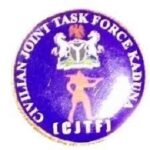FG unveils HIV/AIDS, Viral Hepatitis, STIs policy documents, says 1.6m PLHIV on treatment
Dec. 1 , 2023
The Federal Government has unveiled some National HIV/AIDS, Viral Hepatitis and Sexually Transmitted Infections (STIs) policy documents to strengthen the existing framework for action, in order to reduce the spread of the diseases and manage their impact.
The Minister of State for Health, Dr. Tunji Alausa, unveiled the documents on Thursday during a media conference to mark the 2023 World AIDS Day.
The theme of the 2023 commemoration is “Let Communities Lead”.
The Documents are National Guidelines for Viral Hepatitis Treatment and Care – 2023, Information, Education and Communication (IEC) materials for Prevention of Mother-To-Child Transmission (PMTCT) demand creation and scale-up-2023.
Others are Standard Operating Procedures (SOPs) for PMTCT scale up, jingles in 10 languages for PMTCT scale-up – 2023 and IEC materials for HIV self-testing scale up – 2022.
According to Alausa, the laudable progress in the response to the disease was made in the last two decades towards ending the epidemic by 2030.
“Nigeria with the current HIV treatment coverage above 90 per cent is well on course to meet this goal.
“Currently, Nigeria has 1.6 million People Living with HIV/AIDS (PLHIV) on treatment out of 1.9 million.”
He added that communities contribute to the HIV/AIDS response in numerous ways as their leadership and advocacy ensure that the response remains relevant and grounded, keeping people at the centre and leaving no one behind.
“We cannot achieve lasting progress in our battle against HIV/AIDS without the active involvement of our communities.
“Our communities and community structures are not merely recipients of care; they are champions of change, the catalysts for progress, and the backbone of our collective resilience. “
He also said that tremendous efforts that have been made by successive governments and other stakeholders to control the HIV epidemic by averting new transmission and improving lives cannot be over emphasised.
Alausa said that in November 2020, Nigeria joined a multi-country learning network “the HIV Coverage, Quality, and Impact Network (CQUIN)” under the leadership of the National AIDS and STIs Control Program.
This was with the aim of learning and sharing knowledge to support the coordination and scale- up of Differentiated Service Delivery (DSD) for HIV in Nigeria.
He added that other means of progress have been through the scaling up of numerous interventions and services.
While giving an update on the state of HIV epidemics in Nigeria, the National Coordinator National AIDS, Viral Hepatitis and STIs Control Programme (NASCP), Dr Adebobola Bashorun, said there has been steady declines in annual HIV infections and AIDS related deaths.
He however said that out of the 1.9 million PLHIV, 270,000 had not been identified and that as at 2022, 159,923 estimated children aged zero to 14 years were living with HIV in Nigeria; making it one of the countries with the highest paediatric HIV burden globally.
“Also, 20,364 HIV exposed infants (HEIs) had Early Infant Diagnosis (EID) samples collected within two months of delivery, which translates to only 21 per cent EID coverage and a MTCT rate of 14 per cent at six weeks and 23 per cent through breastfeeding.
“96,517estimated HIV positive pregnant women who needed PMTCT, only 34 per cent were enrolled on Anti-Retroviral Treatment (ART) in 2022.
“However, 50,676 children living with HIV (CLHIV) were on treatment in 2022 which represents 32 per cent of the estimated CLHIVs.”
Bashorun noted that in spite of the current efforts towards paediatric case finding and linkage to HIV treatment, many children remain undiagnosed and thus without access to life saving ART.
He added that it was critical to identify these children and initiate ART as early as possible.
“We are not unmindful that over 90 per cent of funding for HIV/AIDS activities through programs in our country come from foreign partners.
“I therefore call on the Federal Government to look inwards in supporting domestic funding because it is high time we decide our fate and not be dependent on foreign aid which does not do us any good.”
He, however, assured that the legislature would work towards the increase of budgetary allocation to the fight against HIV/AIDS within the face of limited resources.
“We will also provide the legislative framework to protect the rights of people living with HIV and other forms of discrimination and stigmatisation”, he added.
The World Health Organisation (WHO), Universal Health Coverage Cluster Lead, Dr Chavan Laxmikant, said that the gains recorded should be consolidated through the creation of enabling environments for community leadership, continued adoption of innovative approaches for HIV prevention, treatment and care.
“We call on the government of Nigeria and its partners to empower the communities to take up leadership by providing an enabling environment and addressing cross-cutting issues-punitive laws and policies, stigma and discrimination, gender inequality and violence that hinder the communities.”
The News Agency of Nigeria (NAN) reports that World AIDS Day is commemorated on Dec. 1 every year to raisee awareness about HIV/AIDS, show support to people living with HIV and remember those people who have lost their lives to the infection. (NAN)








